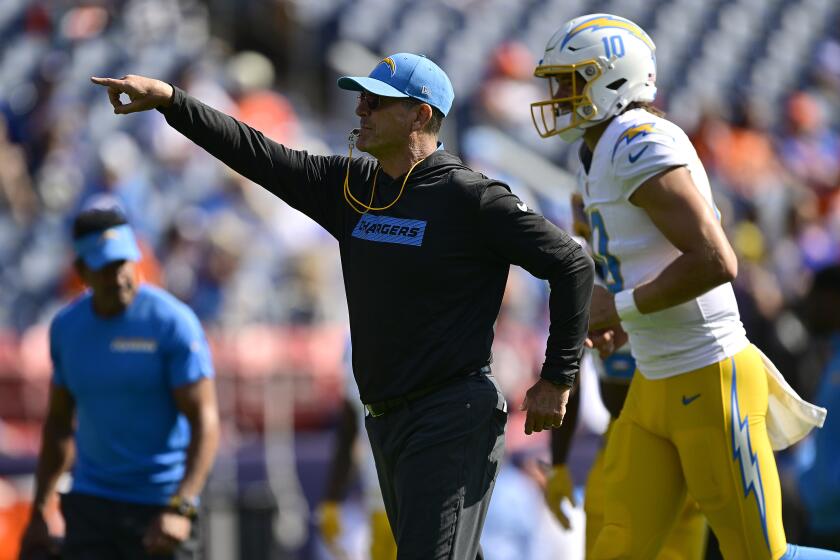Commentary: Net neutrality vote will require users to ‘pay to play’
Before this month’s partisan Federal Communications Commission decision to dismantle the principle of net neutrality, the legal framework was Title II of the 1934 Communications Act, which categorized net service providers as similar to telephone networks, and considered common carriers a utility.
With a 3-2 vote, the FCC overturned a long tradition — one that had only culminated in 2015 in the formalizing of the principle of net neutrality, but that had been honored long before open internet rules became official.
Three aspects of the debate are worth considering as we digest the impact of this decision. A basic expectation is that if you and I pay a service provider such as Verizon, AT&T, Cox or Comcast for internet access, our access should be independent of the content — no price breaks for fans of proprietary content, no premium extracted (nor slower service) if you seek out other sources.
Secondly, the government must protect free speech and not discriminate against any legal content. And third, even if there clearly are nefarious actors on the internet, that should not result in government policy that amounts to tiered access to the public sphere.
The healthiest defense of an open society against its enemies is robust public debate, not systemic bias that chills free speech. Yet in the absence of net neutrality, money will become even more powerful in shaping political opinion.
The old rules were easy for service providers to follow and their repeal creates incentives to slow down net services to extract premium prices. As the FCC decision forces tiered access, this turns the public sphere into a pay-to-play arena: powerful corporations can pay to see their content served at fast speeds, while their competition (not to mention nonprofits) may be squeezed into a slower tier with less visibility. This not only creates barriers, it raises the specter of censorship.
Should policy makers and citizens wish for a net of walled gardens? What is the upside of pay-to-play backroom deals with content providers, or of data caps that are biased for or against different types of net use? Should your broadband company influence what search engine you use, what shows you watch, what news you read?
The FCC’s decision ignores not only the arguments made by numerous experts in politics, technology research, and public advocacy like the ACLU and EFF, it also overrules the careful work of the FCC’s own Open Internet Advisory Committee, and the advice of the government’s own Congressional Research Service.
An argument could be made that the internet needs to be made more secure and that deregulation may help service providers fend off hackers, social media manipulators, and fake news peddlers. But this never required abandoning the principle of net neutrality. Service providers have previously intervened in traffic, for instance when they censored political speech at a Pearl Jam concert in 2007, when they throttled file sharing sites such as BitTorrent, eDonkey and Gnutella to prevent customers from accessing those sites, or when they blocked access to text-messaging by activists who sought to coordinate protests.
Generally we do not associate such acts with an open and free public sphere; they do not empower robust debate. As exceptions we may condone them but that does not make them a solid basis for general policy.
Another argument could be made that dismantling net neutrality still allows very wide access to the net. But access to what, really?
If this policy shift undermines the character of the net as a public sphere and turns large parts of it into a company town, who gains? Let us not forget that the internet was funded and developed by agencies of the government in the first place.
Abandoning net neutrality may lift the profit margins of broadband providers, but at what cost to democracy, to an open media landscape, and to a robust public sphere?
Competition will not fix this, since most Americans face local broadband monopolies. The claim that deregulation will spur infrastructure investment rings hollow — it is hardly a proven correlation. On the contrary, in the absence of open internet rules, the FCC has no levers to incentivize corporations to invest in technological innovation and deployment. The only incentive is for corporations to raise tolls. The losers in this decision are we, the people.
PETER KRAPP is a professor and chair of film and media studies at UC Irvine.
All the latest on Orange County from Orange County.
Get our free TimesOC newsletter.
You may occasionally receive promotional content from the Daily Pilot.



